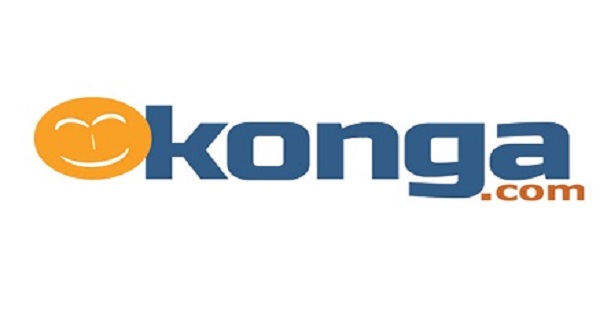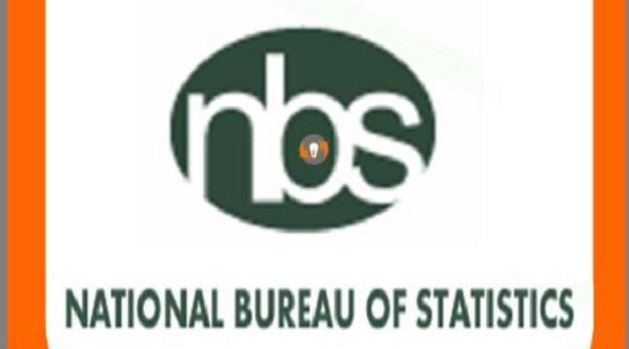E-Business
Konga, Yudala Merge to Disrupt Ecommerce

Konga, Nigeria’s largest online mall and Yudala, Africa’s pioneer composite e-commerce company have officially announced a merger of their operations which will see them effectively become the biggest organized retail and e-commerce/marketplace outfit on the African continent.
The business merger, which takes effect from Tuesday May 1, will see both companies operate under the Konga brand name.
The strategic decision will see both companies leverage the combined strengths of both platforms and is expected to further broaden the scope of organized retail and e-commerce in Nigeria and deliver more value to customers and merchants.
“Combining forces to power the new Konga will enable us effectively achieve our goals of platform expansion and accelerated growth, as we embark on an ambitious journey to redefine the retail ecosystem with the industry’s most advanced technology,” disclosed Olusiji Ijogun, Konga chairman.
“Effective from May 1st, Yudala will now operate under the name Konga, with dual CEOs in the persons of Nick Imudia who will be in charge of online among others and Prince Nnamdi Ekeh who will be responsible for offline. This merger will further strengthen our position in the Nigerian retail market as we creatively position Konga as the first profitable e-commerce company in Africa.

“The efficiency of Konga’s cutting-edge online platform, access to thousands of merchants and Yudala’s expansive network of fully stocked offline stores is poised to give our customers the best shopping experience imaginable. We will be working closely with all our combined clients, customers, merchants and employees to make the integration process as seamless as possible and thereafter make public our road map to sustain our leadership on the continent,” Ijogun said.
One of the exciting benefits of this merger is the possibility it offers prospective shoppers to order online, pay and pick-up the product(s) at the nearest Konga offline store. There are also increasing business opportunities for merchants nationwide.
“We are very excited about the operational merger between Yudala and Konga into the new Konga,” noted Prince Ekeh.
“A merger of this magnitude has never been experienced in Africa. We will be leveraging on Konga’s strong technology backbone and online experience as well as Yudala’s offline experience, network of retail stores and operational efficiency. In the near future, we plan to have a Konga store in every local government area in Nigeria. While this is ambitious, we believe that every Nigerian deserves the right to have access to the full range of genuine products offered by Konga,” Prince Ekeh declared.
Plans are also underway to showcase the full power of the merger with expanded access to thousands of products in Konga online and offline stores for all categories of shoppers.
According to Imudia, “We believe this operational merger between Konga and Yudala will bring immense opportunities for consumers in the e-commerce space. We urge all shoppers, consumers, merchants and clients to stay tuned as we unveil the massive ambitious contents we have to offer.”
Widely applauded by industry watchers as a masterstroke, the merger will broaden the range of products and solutions on offer within the Konga/Yudala stable, while giving the customers and merchants more options and access to an expanded variety of guaranteed quality offerings and payment methods.
The Konga Business platform will now include two distinct but fully integrated aspects including Konga Online, the e-commerce/marketplace platform and Konga Retail, the offline arm of the business.
Both will be supported by Konga Pay, a CBN-licensed mobile money platform and Konga Express, a world-class logistics company with advanced delivery capabilities for internal and external customers.
E-Business
Senate Passes Bill to Re-enact NIMC Act

The Senate has passed a bill, seeking to repeal and re-enact the National Identity Management Commission (NIMC) Act.

This followed adoption of report of Committee on National Identity Card and Population at plenary on Wednesday.
The report was presented by Senator Victor Umeh (LP-Anambra), chairman of the committee.
Senator Umeh in his presentation said the bill sought to provide for the establishment of a national identity database and the National Identity Management Commission.
According to him,the agency will be charged with responsibilities for maintenance of national database, the registration of individuals and the issuance of identity credentials.
He said the bill would lead to the creation of national identity database to source business biometric and empower NIMC to issue regulations and guidelines for implementation of the act and other related matters.
He said the bill sought to strengthen the legal framework of national and digital identity, hereby creating an optimal foundational identification ecosystem that fosters inclusion, universal coverage, and accessibility.
Senator Umeh said the act would establish a harmonious foundational identity system that is governed by a less restrictive, less cumbersome, non-discriminatory, non-punitive data protection, cost-effective, and compliance with global borders.
Senator Umeh said the bill, when passed into law, would address the challenges and limitations of national Identity management commission Act 2007, repeal it, and then close the gap of incomplete and inaccurate national identity database, provide efficient governance and service delivery.
He said the bill received overwhelming support from stakeholders at the public hearing due to the need to implement the long-awaited database system.
E-Business
World Bank Expresses Concern over Nigeria’s Poor Data, Statistics Quality

The World Bank has expressed concern over Nigeria’s poor statistical performance, noting that the country lags behind its aspirational peers such as Mexico, Colombia, South Africa and Brazil.

Mrs. Julie Osagie-Jacobs, director, Information and Public Relations, Ministry of Budget and Economic Planning, stated this in a statement after a courtesy visit to Senator Abubakar Bagudu, minister of Budget and Economic Planning, by a delegation from the World Bank led by Ndiame Diop, country director; and Mr Johan Mistiaen, practice mfor West and Central Africa, on Wednesday.
In his presentation titled “Next Level Statistics to Support Nigeria’s Reform and Growth Agenda,” Mistiaen stated that Nigeria’s statistical system was not on par with those of its developmental counterparts.
He advised that an annual investment of between $10m and $15m in the country’s statistical infrastructure would significantly improve performance and align Nigeria with its peers.
The statement read in part, “Earlier, Mr. Johan Mistiaen in his presentation on the next level statistics to support Nigeria’s reform and growth agenda, observed that the country’s statistical performance was not at par with its aspirational peers as Mexico, Colombia, South Africa and Brazil.
“He suggested that investing about $10-15m annually into the country’s statistical system can raise performance to that of its aspirational peers.”
Responding, Bagudu assured that the Federal Government would continue to guarantee the independence of the National Bureau of Statistics.
He commended the Bureau for consistently releasing credible and methodical data that have been relied upon by reputable international organisations.
The minister stressed that there would be no government interference in the operations of the NBS.
E-Business
FG Plans to Link Social Register to NIN for Humanitarian Crisis

Federal government has disclosed that efforts are ongoing to link the National Social Register (NSR) to the National Identity Numbers (NIN).

Prof. Nentawe Yilwatda, minister of Humanitarian Affairs and Poverty Reduction, explained that the linked data would assist the country to anticipate crises, mobilize resources faster, and ensure aid reaches those who need it the most.
He said harnessing data would save the country and relevant stakeholders the stress and bottlenecks of outdated processes.
He also identified bureaucratic crisis as the biggest crisis in the humanitarian space which stalls responses to humanitarian issues.
Speaking in Abuja on Tuesday at the National Humanitarian Roundtable programme, the minister said: “People are traumatized by climate change, security threats and economic shock across the country and in the midst of these, we have limited funding.
“The biggest crisis we have is not just the people being killed, the crisis we have is a bureaucratic crisis that does not respond to a humanitarian crisis. Every delay in decision making, every inefficiency in coordination, every shortfall in funding, costs the life of people.
“They say knowledge is power, but knowledge can be destructive too. It can only be power if we use it effectively. By leveraging data and technology, we can anticipate crises; we can mobilize resources faster and ensure aid reaches those who are in need the most and without the bottleneck of outdated processes.
“We are linking the social register to national identity numbers and geotagging all homes of those who are vulnerable across the country so that if there’s any crisis, we don’t need to begin to walk around communities and taking names and asking the States Emergency Management Agency and the National Emergency Management Agency (NEMA) for data.

 News3 days ago
News3 days agoPolice Arrest 4 Bank Staff over Alleged ₦270m Fraud, Money Laundering

 E-Financial3 days ago
E-Financial3 days agoUBA Grows Profit to ₦804Bn, Declares N3 Kobo Final Dividend

 E-Business3 days ago
E-Business3 days agoNIMC to Prosecute Nigerians Printing ‘NIN Cards’, Says Only Slip is Legal

 E-Business2 days ago
E-Business2 days agoFG Plans to Link Social Register to NIN for Humanitarian Crisis

 Telecom3 days ago
Telecom3 days agoOpen Access Fabrics Set to Drive Connectivity to Achieve a Digital Economy

 E-Business3 days ago
E-Business3 days agoUnleashing Nigeria’s Business Potential: The Cloud as Catalyst for Growth

 Telecom2 days ago
Telecom2 days agoKeystone Bank Seeks to Join Suit in Tussle over 9Mobile Shares Ownership

 Telecom3 days ago
Telecom3 days agoMTN Nigeria and Pan-Atlantic University Invite Media Practitioners for 4th Media Innovation Programme






















